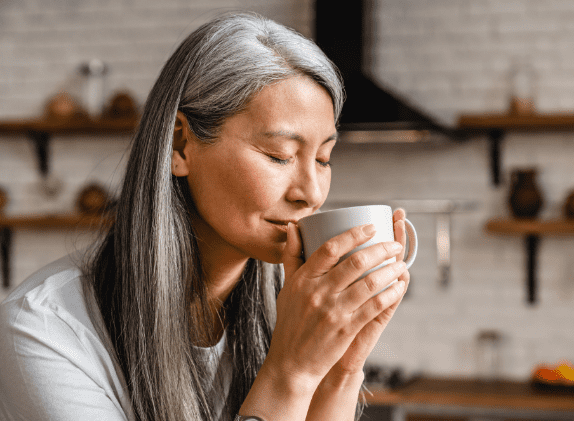Psilocybin is a psychoactive compound made by certain mushrooms called entheogenic mushrooms.
It has been used as a psychedelic agent for religious and spiritual ceremonies throughout human history worldwide. Albert Hofmann first isolated psilocybin in 1957 from the Central American mushroom Psilocybe mexicana. Since then, more than 100 species of mushrooms containing the psychoactive compound psilocybin have been discovered around the world.
In the early 1960s, researchers began studying the compound’s potential for treating mental disorders. But research quickly ground to a halt in response to safety concerns coupled with negative media coverage around the psychedelic effects.
Until recent years, psilocybin mushrooms have been touted as dangerous and addictive.
Research has discovered the contrary, and it is no longer considered a high-risk addictive substance because it hasn’t been shown to cause uncontrollable drug-seeking behavior. Medical emergencies as a result of taking the compound are also rare.
New research studies in controlled environments, such as talk-therapy sessions, have renewed a sense of trust and hope in using psilocybin in therapeutic settings with awareness of the potential risks.
“Despite the apparently low risk for toxicity and addiction, there’s nonetheless concern about use of psilocybin,” Dr. Roland Griffiths explained. “That’s based primarily on concerns about adverse effects, such as panic reactions and possibly the precipitation of enduring psychiatric conditions.”
These concerns have led to rigorous testing for the efficacy and safety of psilocybin. They’ve employed incredibly structured settings with adequate oversight for participants in the studies and therapy sessions.
Psilocybin in therapy
The use of psilocybin mushrooms in therapy for research purposes has become more prevalent in recent years.
Psilocybin therapy for mental health challenges combines the pharmacological effects of psilocybin, a psychoactive substance, with psychological support. Psilocybin causes changes in perception, emotion, and cognition when ingested, which is why it is essential for people using psilocybin to be monitored and guided through their experience.
Psilocybin has been studied with certain mental illnesses, including depression, anxiety disorders, obsessive-compulsive disorder, alcohol use disorder, and tobacco use disorder.
These studies concluded that there is evidence that psilocybin has the potential to help manage these mental health conditions.
The Johns Hopkins Center for Psychedelic and Consciousness Research is “leading the way in exploring innovative treatments using psilocybin.” Here, researchers focus on how psychedelics can positively affect mental and physical health.
Currently, studies are looking into the effectiveness of psilocybin as a new therapy option for mental illnesses, brain disorders, and addictions, including opioid addiction, depression, Alzheimer’s disease, post-traumatic stress disorder (PTSD), Lyme disease (post-treatment), and anorexia nervosa.
Psilocybin and depression
It’s no surprise that there was a rise in concerns around mental health during the start of the global pandemic in 2020. The CDC released information in early 2021 that shows people began to experience, and get diagnosed with, depression at a rate four times higher than the last quarter of 2019.
Current research suggests that depression combines genetic, biological, environmental, and psychological factors. It can occur at any age but most commonly occurs in adulthood.
Some symptoms of depression include persistent feelings of sadness and “emptiness,” decreased energy and fatigue, and feelings of hopelessness. Additionally, loss of interest in hobbies, loss of appetite, lack of purpose, and thoughts of death or suicide may persist.
Major depressive disorder (MDD) is a burden afflicting 5% (16.5 million people) of the United States population, but current treatments have limited short and long-term effectiveness.
Recent evidence suggests that 1 or 2 administrations of psilocybin with psychological support produce antidepressant effects in treatment-resistant depression. A 2020 study found that psilocybin-assisted therapy delivered immediate, effective, and sustained antidepressant results in patients with major depressive disorder.
Psilocybin mushrooms health benefits
Many researchers, study participants, and regular users of psilocybin find the experience itself to be transformative and healing. Psilocybin seems to help people confront difficult emotions and generally experience their feelings more fully.
This is different from antidepressants (SSRIs) that mainly combat depression through blunting negative emotions. This can be helpful, but SSRIs can numb positive feelings too, which makes it more challenging to feel the fullness of happiness and joy.
Many positive research studies show psilocybin as an alternative treatment for depression and other mental health disorders. While it is widely agreed upon that “progress needs to be made in explicitly understanding the cognitive and neural mechanistic process by which psilocybin works,” there is so much hope for using psilocybin as an alternative therapy treatment more consistently in years to come.
At Trufa, we are convinced that mushrooms are powerful. We love how they positively impact mental health and are excited by the research being done on psilocybin. One of our goals is to increase awareness of the mental health benefits of psilocybin so that more people who need help can get it.
Click here to learn more about mushrooms for mental health

